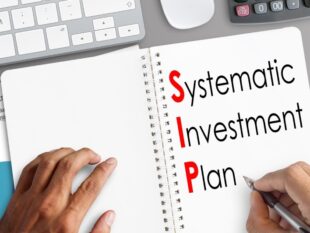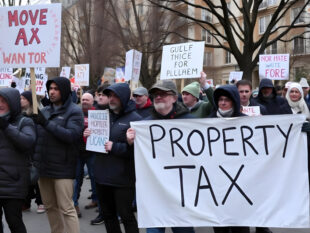Understanding debt management schemes
by Abdul Aziz Mondal Management Published on: 29 March 2018 Last Updated on: 18 October 2024

Finding it difficult to pay off your loan or credit card bills? Are you looking for options to write off your debt? Sometimes naive decisions or hard luck could lead to misfortune. Nevertheless, there are many reputable firms across Scotland and England to help you during difficult times, no matter how you’ve landed in the financial situation you’re in. This guide will help you understand some of the most suitable schemes to help you come out of your financial troubles with ease.
Trust deed :
A trust deed is a formal, voluntary legal binding agreement between a lender and the borrower. As per the agreement, you can repay a realistic amount in monthly installments, over a period of 48 months. This is hugely advantageous, as once you sign the agreement, your existing debt will not be taken into consideration, and you only pay what you can afford. After paying monthly installments for 48 months, the remaining amount of your debt will be written off. Under this scheme, you will be able to protect your home and your car. You qualify for a trust deed if you’re a Scottish resident or have lived in Scotland for the last 1 year, with unsecured debts of not more than £5000. To find out if you qualify for a trust deed or the ideal debt solution as far as your financial situation is concerned, visit https://www.debtfreelife.co.uk/to get a better idea.
Debt Arrangement Scheme (DAS) :
Sometimes you won’t qualify for a trust deed. If you cannot afford to pay monthly installments, i.e. if your disposable income is not enough to cover your debt, you can opt for a Debt Arrangement Scheme (DAS). As per the DAS, the interest on your debt will be frozen; however, you must pay your entire debt over a period of time you’re comfortable with. When you opt for a DAS your loans, overdrafts and other unsecured debts will be much more manageable. The creditor will not be able to press charges against you, as you have signed up for a DAS. The biggest advantage is you can extend the repayment to an extended period of time, and you don’t have to pay any interest. You also have the option to change the amount you will be paying within the duration. If you still find it difficult to repay your bills, you can even opt for a six-month suspension of payments.
Bankruptcy :
Bankruptcy is the situation where you’re unable to write off your debt. When you file for bankruptcy, you can prevent creditors from taking legal action against you. You qualify for this debt solution if you’re a citizen of England, Northern Ireland or Wales. It is ideal for those who don’t have enough disposable income to qualify for any other debt solution. In short, this is your last resort. But you don’t have to worry, as it could be a way to start anew after going through a difficult phase financially. Most people rebuild their credit with great care once the bankruptcy process is complete. Your debt consultant will be able to assist you to decide if this is the best option or if there are other debt management schemes you can opt.
Sequestration :
Sequestration is nothing but Scottish bankruptcy. You can opt for this solution if you are unable to write off your debt. This means you qualify if you have no disposable income and no assets. When you count on a reputable firm, they will convert your unmanageable debt to a reduced payment, which you need to pay on a monthly basis. Similar to a trust deed, your existing debt will be frozen and you won’t have to pay interest. You qualify for sequestration if you’re a Scottish resident or have lived in Scotland within the last 1 year, with debts of over £1500. However, you cannot qualify if you have already been declared bankrupt in the last five years.
Individual Voluntary Agreement (IVA) :
Individual Voluntary Arrangement (IVA) is similar to a trust deed for the citizens of England and Wales. The IVA is a fixed-term, legally binding agreement between the creditor and the borrower. The payment will take into consideration your disposable income, and will take place in monthly installments for 5 years. By setting up an IVA, you will be able to write off around 50 to 60% of your overall debt after completing the agreement. If due to some unforeseen reason, you’re unable to pay the installments, the Insolvency Practitioner (IP) can speak to your creditors for a negotiation. Usually, most creditors agree to a negotiation. In any circumstance, if your creditor doesn’t agree to the negotiation, you can opt for bankruptcy. Talk to your debt advisor to check if this is the best-suited plan or there’s something else more appropriate.
Debt Relief Order (DRO) :
A Debt Relief Order (DRO) is a legal and formal agreement, which is ideal for people with low income and low assets. Though it is similar to bankruptcy, in the case of a DRO, your unsecured debt level must be lesser than £20,000. Your disposable income must be around less than £50 after excluding your living expenses. Apart from your car, you must not own any other assets over £300. Your car also must be valued at less than £1000. Some type of debts including student loans cannot be included in a DRO. Your debt consultant will be able to advise you after taking a look at what type of debts you have.
Full and final settlement :
What if you’re able to borrow a sum of money from your family, but it’s still not enough to pay off your entire debt? In such cases, you can opt for a full and final settlement. You can make the payment and have the remaining amount waived off in return.
Debt consolidation :
Do you have many credit commitments? Finding it difficult to remember when and how much to pay? Debt consolidation would be the most suited plan in such cases. It is the process of combining many unsecured debts, which could be anything from bank loans to credit card bills. When you consolidate your debt, you take a large loan which is sufficient to cover all the small credit loans you have. This will help you keep track of how much you need to pay. Furthermore, when you opt for debt consolidation, your name won’t be added to any public registers like other debt solutions.
Debt Management Plan (DMP)
Wondering if there can be informal agreements between the borrower and creditor? The answer is – Debt Management Plan (DMP). Since this agreement is not a legally binding one, you can negotiate with your lender for a lower repayment, for a longer duration. This solution is ideal only if your creditor is willing to support you. Being an informal agreement, your creditor is not legally bound to agree to your repayment offer. Also, you will have to pay the amount in full. If your creditor sees a progress in your repayments, they could reduce the payment for you. But that’s highly unlikely. Keep in mind that your debt advisor can only assist you with the agreement, and cannot do much if there is legal action against you. You could probably choose another option if you’re hesitant to negotiate.
Solutions for homeowners :
If you are a homeowner and you’ve borrowed funds against your home, you could opt for any of the following schemes – taking a secured loan, remortgaging or release of equity.
Read More :







































































































